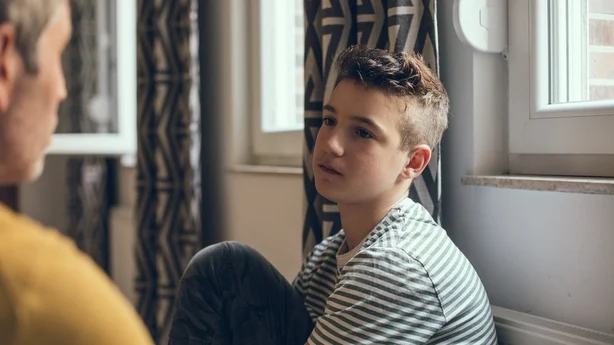What are the dangers of doom scrolling? And how can we prevent our children from doing it?
What is doom scrolling?
"Doom scrolling is all about passively consuming negative content online and this often occurs when young people go online when they’re already feeling down," explains Dr Rebecca Nowland, senior research fellow at the University of Central Lancashire whose research focuses on social media use in childhood and adolescents.
"Doom scrolling isn’t just scrolling aimlessly as a distraction or to beat boredom," adds Nowland. "Instead, algorithms provide young people with an endless carousel of negative content."
What impacts can doom scrolling have?
"A negative product of doom scrolling can be engaging with misinformation," warns Nowland. "It’s important for all ages to think critically about content online, or it has the potential to be incredibly harmful."
Nowland acknowledges that social media also has a plethora of benefits, but is concerned about the consequences associated with its addictive nature.
"For some young people social media can become really addictive, pulling them away from real life activities and worsening their mental health," she says.

What can parents do to help?
Don’t villainize social media
"Social media isn’t the enemy; it’s all about finding a balance between connection and positivity," says Nowland. "It is important for parents to show interest in their child’s social media use like any other hobby or interest.
"This will encourage open conversations about social media use, and allow them to know what they are viewing."
Educate yourself about social media
"Take the time to educate yourself on the basics first, before diving into a conversation with your young person," recommends Fiona Yassin, family psychotherapist, and founder and clinical director of The Wave Clinic. "For example, your young person may be seeing harmful content online such as misogynistic views, violence or war – but seeing it does not mean they are searching for it.
"Algorithms have been recommending harmful content to children, even if unintentionally."

Keep the conversation open and honest
"Establish an open dialogue with your children and discuss reasonable rules about being online together," advises Matt Buttery, chief executive of Triple P UK and Ireland. "Explain to them that a healthy mix of ‘real life’ interaction and online is important – and that we can get something from both."
Nowland adds: "Chatting to your child about their daily life and asking about what’s concerning them can take the focus away from social media, and help to find the reasons behind doom scrolling."
Encourage teens to set their own boundaries
"Helping young people set their own boundaries on social media usage allows them to learn to use it in a positive way without feeling restricted or punished," explains Nowland.
Be a role model
"Set a positive example for your young person by having screen free time," suggests Yassin. "Put your phone out of sight at mealtimes or in the evening and be aware of using your phone for long periods or whilst you’re around family and friends."

Find alternatives
"If your child is using social media for long periods which interfere with their everyday life, it’s time to explore alternatives," says Nowland. "Often boredom and loneliness are the primary factor behind social media use, so look for alternative hobbies and activities."
Try a family social media detox
"Stepping away from devices is important for us all, and although they may initially resist, having time away from social media can be particularly beneficial for young people," says Yassin.
Remember to set a goal of the minimum amount of time you want your family social media break to last.
"Once you’ve achieved it, come together as a family and reflect on how you feel," recommends Yassin. "It may help to delete social media apps from your phone or temporarily disable your accounts to avoid temptation."
Praise progress
"Try look at it as an ongoing learning opportunity," suggests Buttery. "Rather than being critical when children fall foul of an agreed schedule, praise your child on what they have achieved when they meet the targets you have set together.
"Changes to habits take trial, error, and time."
If you have been affected by issues raised in this story, please visit: www.rte.ie/helplines.
Disclaimer: The copyright of this article belongs to the original author. Reposting this article is solely for the purpose of information dissemination and does not constitute any investment advice. If there is any infringement, please contact us immediately. We will make corrections or deletions as necessary. Thank you.






